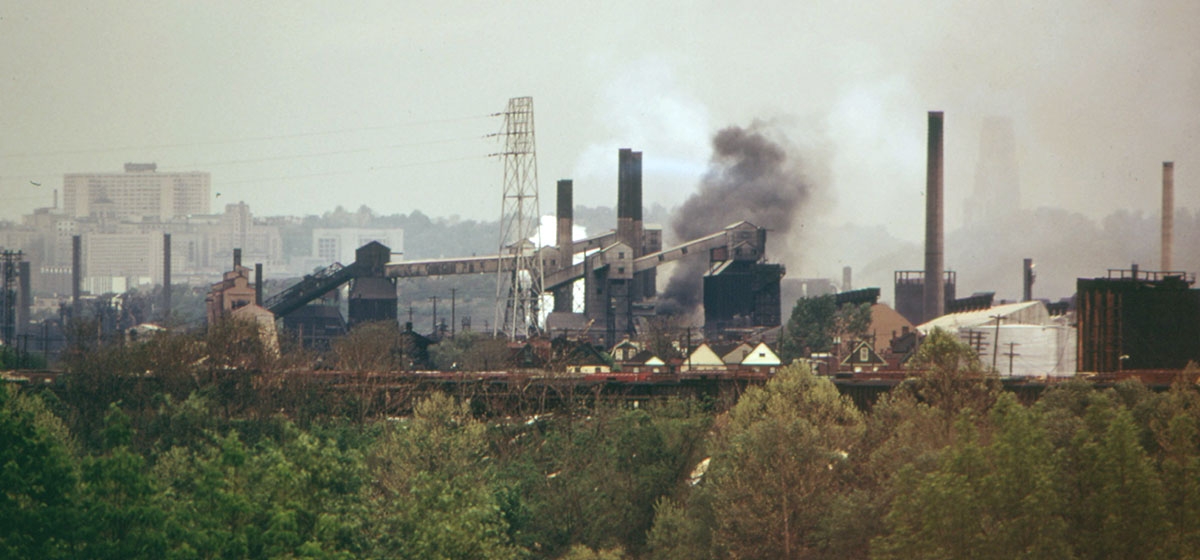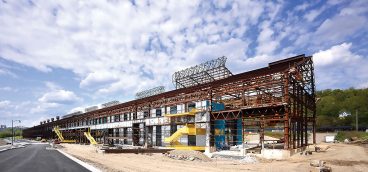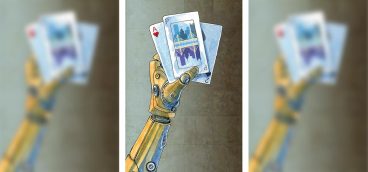A Day of Reflection

It was a warm, clear, sunny, wonderful day with a deep blue sky, so untypical for Pittsburgh. I remember it like it was yesterday, although some three-plus decades have since passed. The city is noted for being one of the cloudiest in the US, ranking up there with Seattle and Portland. So, I was enjoying myself.
Soon after I began my tour that day at the J&L Hazelwood plant, I ran into Bill, a family friend. Bill grew up in the same neighborhood as my father. He knew my father, grandmother and grandfather and they knew his immediate family too. We were all of Polish extraction to one degree or another. In fact my paternal grandparents came to America from Poland. My mother’s parents immigrated from Croatia; pardon my faux pas, Yugoslavia. Pittsburgh’s neighborhoods were typically highly stratified ethnic places. Ours, the South Side, was biased towards the eastern European countries with a smattering of Germans and others. There were many churches, mostly Catholic, some Orthodox and a smaller, but still significant number of Protestant congregations. I lived near the only synagogue.
The main thoroughfare, Carson Street, reflected this ethnic bias in its selection of businesses. Fresh fruit and vegetable stands were plentiful. There were plenty of butchers and bakers, too, in those twenty-some blocks of town terminating near the mill. The predominant form of business consisted of bars, taverns, beer gardens, saloons, gin joints or whatever you want to call them. Boilermakers, a shot glass of whiskey dropped into a beer, were a common drink among the steelworkers. Beer with a raw egg in it was normal, too. Many a pay never saw home as it was converted into a liquid that ended up in the sewer.
In those few miles I can still remember there were at least three places where you could buy fresh eggs and poultry. I think I have to explain here what I mean by fresh poultry: It was still alive. I mention this because Bill’s widowed mother owned and ran one of these shops. “Live ducks and geese, fresh eggs,” the sign read.
You walked into one of these stores amongst the cackling and squawking of geese, ducks and hens. The birds were penned in wooden cages with doors that were often stacked one above the other. You pointed to what you wanted and in a short time the animal was dispatched to the netherworld, defeathered, gutted and wrapped in paper for your next meal. The odor of these places was not what the mind would usually interpret as wholesome fresh food. For some time when I was young, my Polish grandmother, whom we called busia (sounds like busha), raised chickens as pets, that is, until they were food.
Usually, when I saw Bill at work, we just would say hello. Today was different. We talked for more than half an hour. He was much older than I, but younger than my father. We had more in common than just the neighborhood. My dad and granddad were steelworkers too, and we all worked for the same company at J&L’s Pittsburgh Works. Steel plants are usually large, ours occupied about 5 miles of property on both sides of the Monongahela River. Bill and I worked in Hazelwood. My father and grandfather worked across the river at the company’s South Side plant. To someone unfamiliar with Pittsburghese, it would sound like we were calling the place “Jaynell.” And we worked in a “stillmill.” I believed that a lot of that accent came from our Slavic language backgrounds with a bit of Italian mixed in, although a more scientific explanation would probably confirm that it comes from a Scotch-Irish and perhaps German or “Pennsylvania Dutch” connection that was more prevalent before the massive eastern European immigrant invasion into the region much later.
If you want to split hairs, the only one of us who actually made steel was my dad. My grandpap was a locomotive engineer, Bill was a machinist and I made coke. Then again, some people might say that I didn’t make anything but trouble. I was a supervisor. The others were union men. I usually tell people that I came from the “dark side.” Despite the fact that he was retired, my grandfather was inwardly very proud of that fact. My father told me so. His grandson was the boss. On top of that it was at the coke plant, not an easy place to work. He started at the company in 1906, spoke little English, was uneducated, illiterate and signed his name with an X. For some reason, unknown at least to me, the company stripped him of 13 years of seniority after the failed 1919 Amalgamated Association of Iron and Steel Workers strike, or simply the “Amalgamated” strike. It marked the last major push for steel unionism for a couple decades. In 1937 my dad, one of 10 children, joined the Steel Workers Organizing Committee, the predecessor to the United Steel Workers Union. Yet, I was a boss.
One of the reasons I remember my talk with Bill so well on that day long ago is that he told me he had decided to retire and would be leaving for pension very soon. We had the opportunity to dig down deep into our stash of memories and took it.
But there was another reason our conversation has lingered with me for so long. About fifteen minutes after I left, Bill was dead, claimed by an industrial accident. My understanding is he did not knowingly do anything wrong. I was not there to know.
The shock and suddenness of his death helped to further cultivate my interest in trying to improve both the physical and attitudinal aspects of safety. Convincing people to join with you in that effort is difficult to say the least, in my opinion, largely because the reward system for improving is negative and largely not apparent. Sort of like breaking the speed limit: as often as you do it, you seldom if ever get a ticket or have an accident. So, why not speed and get there faster too.
A number of years later, I was part of a team of managers charged with setting up a program to try to eliminate “repeat offenders,” for lack of a better term—workers who suffered more than a couple of minor injuries.
You may find this hard to believe, but there is a cadre of folks, I’ll call them “manly men,” who believe it is their fate to be injured because they work on tough, dangerous jobs. When, for example, Marines are called to action there is an expectation that someone may die. Some of the participants in our program actually expressed that opinion for themselves. Steel mills offered plenty of opportunities for accidents and injuries.
To convince others that there should never be any anticipation of injury, even a minor scrape, we sought the advice of the corporation’s principal safety expert. I’ll call him Joe. One of his suggestions was to make a presentation to the program’s participants, explaining the details of three fatal accidents that had occurred at our company: one to a supervisor; another to an hourly worker; and a third to a contractor. Safety excuses no one.
I found what Joe had to say about the accidents and how he explained the causality behind each to be both interesting and rewarding. Afterwards, I asked him why he chose those three particular incidents from among the number he could have selected. I don’t really remember his entire response except for his question asking me why I wanted to know. I told him it was because I had done each of those jobs at some point in my career in the exact same way.
Perhaps it’s a passing memory of the South Side, or J&L, or of my dad, or chicken, Bill himself or simply a clear sunny day that brings me back to such moments. I can never pinpoint the triggers, but know that, when activated, I am faced with a day of reflection.





